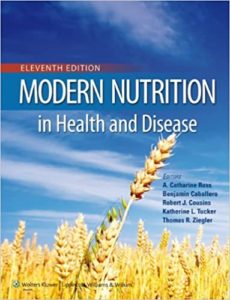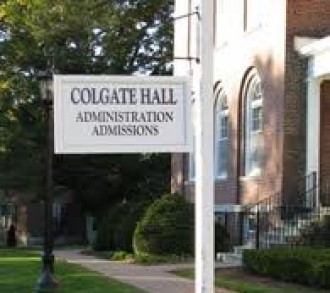How They Look at You 0
 What does need blind mean? and If I say I will not be applying for financial aid help me get accepted? are questions often asked. To the first question, a college would say it means We do not consider the financial need of an applicant when considering his or her qualifications for admittance. In fact, most all most competitive colleges describe their admissions policies as holistic. They look at the grades, test scores, essays, recommendations, activities but not the financial need.
What does need blind mean? and If I say I will not be applying for financial aid help me get accepted? are questions often asked. To the first question, a college would say it means We do not consider the financial need of an applicant when considering his or her qualifications for admittance. In fact, most all most competitive colleges describe their admissions policies as holistic. They look at the grades, test scores, essays, recommendations, activities but not the financial need.
But I say buyers beware.
To the second question, the answer is no. All families should at least file the FAFSA form. See how financial aid really works here. Though you may have found out that your eligibility of “need based” aid is not possible, circumstances could change either because of younger siblings nearing college age or loss of income. At a College Board seminar I attended, one FAO at an elite private confided in me that if a family doesn’t complete at least the FAFSA prior to freshman year…the chances of receiving aid later would be “highly unlikely”. So, the student can still claim “no” in response to the application question “Will you be applying for financial aid?” But fill out the FAFSA…not the Profile.
There are distinct patterns, typically not known by applicants that differentiate some holistic colleges from others. Most colleges focus entirely on academic qualifications first, and then consider other factors. But some colleges focus first on issues of fit between a college’s needs and an applicant’s needs.
Every college has a unique way of looking at a student. Most common among liberal arts colleges and some of the most competitive private universities, results in a focus on non-academic qualities of applicants, and tends to favor those who are members of minority groups underrepresented on campus and those who can afford to pay the full cost of attendance or COA.
most competitive private universities, results in a focus on non-academic qualities of applicants, and tends to favor those who are members of minority groups underrepresented on campus and those who can afford to pay the full cost of attendance or COA.
Rachel B. Rubin, a doctoral student in education at Harvard University did extensive research of about 75 elite colleges and universities. Her findings are summarized in Inside Higher Education.
Her research concentrated on the most competitive colleges that admit small percentages of their applicants and that generally say the vast majority of applicants are capable of succeeding academically.
I smile when I recall the picture drawn by the Dean of Admissions and Financial aid of Harvard, Bill Fitzsimmons at a College Board admissions workshop I attended. He said with over 32,000 applications every year (most very qualified applicants), it was a tough task. But once they winnowed the pile down to the last 6500 applications, he said this: We could just as well have thrown all 6500 files out the window on to Harvard Yard and admit the first 1800 we picked up. That would give us a perfectly diversified and talented freshman class. At least now it is decidedly more diverse than it was in the late 1880’s.
 Speaking of Mr. Fitzsimmons, here are five questions that he responded to in an interview in 2009. The answers are an accurate depiction of Harvard’s policy and philosophy today.
Speaking of Mr. Fitzsimmons, here are five questions that he responded to in an interview in 2009. The answers are an accurate depiction of Harvard’s policy and philosophy today.
Making Your Final Decision 0
Countdown to National Deposit Day!
 At this time of year high school seniors have heard from the colleges to which they applied. The most competitive colleges and universities are finished reviewing applications from all of the country and the world. April 1 is the date that all colleges will have sent out letters to anxiously awaiting seniors.
At this time of year high school seniors have heard from the colleges to which they applied. The most competitive colleges and universities are finished reviewing applications from all of the country and the world. April 1 is the date that all colleges will have sent out letters to anxiously awaiting seniors.
There will be just one month from then until “National Deposit Day”. May 1 is the day by which all college bound seniors must decide where to enroll in the fall of 2024. Some colleges have extended that date to May 15 because of the delay in the processing of the newly designed Federal financial aid form, the FAFSA. Making the final decision may not be easy unless students have done certain things in the year or two prior to the spring of the senior year. Most students are usually presented with at least two positive alternatives from which to choose. The pandemic has made it much harder for students to do their best work over the years from 2020 through 2023, In addition, colleges have had a much more difficult time during the application reading and selection process. Trying to measure college readiness or candidates without standardized test scores in many cases and differing grading systems instituted in the junior year when distant leaning was in full effect.
So how does one go about making an effective decision ~ a decision that allows the entire family to win? The following steps are what we advise our students. Think about these even if you will not be facing such a decision for a few years.
The overall goal, I believe, is to integrate the academic decision with financial considerations. That is particularly important when there is more than one college bound child in the household.
First ~ Think about the academic reasons those colleges were on your list in the first place. Review the departmental majors and using the second “A” of the AAA process learn more about student outcomes with that major at that college. Read my essay “What is College For” and follow the links.
Second ~ Make an objective evaluation of each financial aid award. Determine how much aid the college is awarding in the form of grants, scholarships, and loans. Most colleges do not include adequate amounts in the cost of attendance (C.O.A.) to include personal expenses. These are books, supplies, personal sundries, and transportation. If you have done a Dry Run with us prior to your students application you will see that we often add $4,500 to the direct expenses. The direct expenses are the fixed billable costs, tuition, fees and room and board. You should too.
Keep in mind that college work-study is not a direct credit toward billable costs. Do not include that in your calculations. If there is a loan offer in the award (other than a Stafford), do not include that either. Subtract all the other awards from your C.O.A. and you will close to knowing what the real out of pocket cost is for that college. Do this for each college and make an objective comparison.
Are You Ready to Apply Early Decision, or for that matter Early Action? 0
It never fails. As fall approaches each year, college-bound seniors are being asked by their peers, What schools are you applying early to? or What is your ED (early decision) school? The questions are almost presumptive in tone as if applying early is the best strategy in applying to college.
Students assume they will be applying early somewhere. Forget about the fact that they may have not even started the essays, done any substantive research into the college or have learned if it is affordable or not and how the adcoms will look at that them.
I remind them each year that if they have identified a college that it absolutely their first choice and would die if not admitted, to discuss the merits with me. There are many different types of admission policies. Here I will discuss how to approach making the Early Decision, decision. But it is also applicable for Early Action which is often a more competitive pool in which to compete.
However, since Early Decision is a binding commitment to attend if admitted, it is important to make sure that each student considers the most important question of all. That is Is applying Early Decision the right choice for you? Here’s a self-quiz to help you decide if you’re ready to apply Early Decision.
Answer Yes, No or Not Sure to the following questions:
1. Are you applying Early Decision mainly because you have decided that one particular college is your clear first choice?
2. If the college you’re considering for Early Decision suddenly became less prestigious, or its ranking dropped 50 points, would you still want to apply to this college Early Decision?
3. Would you still want to apply Early Decision to this college if your chances of being admitted Early Decision were the same as if you applied Regular Decision?
4. Have you visited your prospective Early Decision College at least once, and did your visit include taking a formal admissions tour rather than just walking around on your own?
5. Have you visited several other colleges, including taking their formal admissions tour rather than just walking around on your own?
6. Have you had some form of personal contact with the admissions office at your prospective Early Decision College? Have you researched the internship requirements, if any, for your prospective major?
How to Show You Are Interested 0
 When I was looking at colleges DI stood for drill instructor, not demonstrated interest. The DI was someone many kids in my generation had very little interest in knowing. In the myriad of acronyms and abbreviations surrounding the college process today, DI refers to the level of interest the applicant demonstrated in a particular college.
When I was looking at colleges DI stood for drill instructor, not demonstrated interest. The DI was someone many kids in my generation had very little interest in knowing. In the myriad of acronyms and abbreviations surrounding the college process today, DI refers to the level of interest the applicant demonstrated in a particular college.
The question is, how much importance does the college admissions committee (ad com) place on demonstrated interest. The answer is, not much some and very much. In other words, it depends on the college. Emory and American, for instance, will admit it takes the applicant’s level of interest into consideration. Others, like Stanford and MIT, may say it does not matter how much interest you show, they look at all applicants equally. But I suspect they say that to ward off students who want to game the system, as you will learn here.
Regardless of what a school may say, I recommend that all students make an effort to show demonstrated interest and learn as much about their prospective colleges as possible. It all starts with research using the AAA method. Once that is accomplished the student should have a good idea of the appropriateness of each college on his or her list. Is it a good fit intellectually, compatible with one’s values and, based on the common data set, is it a reach, a 50/50, a safety or in the snowballs chance in ____ category? Not to mention are they affordable? If such due diligence still leaves the college on the list then further inquiries need to be made.
Such inquiries may be described as showing demonstrated interest and that is fine. For instance, prospective students should know about the depth and nature of academic internship and career advising. Other good conversation starters are:
- Is the faculty 100% invested in the teaching of undergrads and if teaching assistants are used what are their responsibilities? (Universities primarily)
- What has been the four-year graduation rate over the last four years, and does it vary with major?
- Are certain programs offered in the (your intended major) department going to be expanded or cut back?
- I am a student at a high school that does not give grades. Are you familiar with the ________ Schools curriculum? How do you compare my application with someone from a more traditional high school?
- What will be the merit scholarship criteria for the _______ Scholarship next year?
Do this more to learn more about the school’s attitude toward students than with the intent of buttering up the regional admissions counselor. Colleges can spot the disingenuous inquiry. Thoughtfully think about the questions before you call (or email) them. Of course, be sure you are not asking questions that are already answered in the fast facts or FAQ sections on the college website.
By the way, too many students are taking their safety schools for granted. Applicants should have some good reasons why they would be fine at their safety too. Carefully research and show interest in them as well. Such fall back colleges have been known to wait-list or reject students whom the adcom has determined would not attend if accepted. No college markets itself as the # 1 favorite safety school, so buyers beware. Even state colleges are hard pressed to accept the students they once could because of the overflow of applicants. States are cutting back faculty, programs and other costly expenditures have once taken for granted. In many cases, a top student may be able to go to a private college at much less than a state-supported public.
If you are in the Class of 2023, now is the time to review your college list. Most of you will take Subject tests and the ACT this year, (because of the latest virus scare, test dates have been expanded). At the end of June, 2022 you will be starting the college application and essay writing process, give us a call or email today.
Do You Want to be a Doctor? 0
 Do you have a student or are you a student with aspirations to be a Doctor of Medicine or pursue any healthcare profession? With all the talk about healthcare issues and challenges, our basic western system of Allopathic medicine continues to frustrate both the patient and caregiver. My strong suggestion to aspiring doctors and nurses is to read this book and/or this one and watch this in its entirety before entering a field that is getting more purblind in understanding true wellness and based on scientific methods that have proven to be inadequate when it comes to curing …much less preventing disease.
Do you have a student or are you a student with aspirations to be a Doctor of Medicine or pursue any healthcare profession? With all the talk about healthcare issues and challenges, our basic western system of Allopathic medicine continues to frustrate both the patient and caregiver. My strong suggestion to aspiring doctors and nurses is to read this book and/or this one and watch this in its entirety before entering a field that is getting more purblind in understanding true wellness and based on scientific methods that have proven to be inadequate when it comes to curing …much less preventing disease.
My philosophy of placing more emphasis on the prevention of disease than the treatment of symptoms and  strengthening the body’s natural immune system is making more sense as the nation as a whole becomes sicker physically, mentally, and spiritually. Bastyr University and other Naturopathic colleges teach that approach. It is all about the ounce of prevention that is worth more than a pound of cure. Particularly when the cure is simply designed to manage the symptoms with questionable drugs and not address the real cause of the disease. Recently, intelligent whistleblowers are speaking out against the other big-money maker product, vaccines! It is, particularly now, a big risk as more M.D.s are realizing how damaging vaccines can be. In this day and age, it is very important that parents, particularly mothers, research the reasons for any vaccines and how they are determined to be safe before allowing their children to be vaccinated.
strengthening the body’s natural immune system is making more sense as the nation as a whole becomes sicker physically, mentally, and spiritually. Bastyr University and other Naturopathic colleges teach that approach. It is all about the ounce of prevention that is worth more than a pound of cure. Particularly when the cure is simply designed to manage the symptoms with questionable drugs and not address the real cause of the disease. Recently, intelligent whistleblowers are speaking out against the other big-money maker product, vaccines! It is, particularly now, a big risk as more M.D.s are realizing how damaging vaccines can be. In this day and age, it is very important that parents, particularly mothers, research the reasons for any vaccines and how they are determined to be safe before allowing their children to be vaccinated.
Not convinced? Here is a refreshing well-researched article by a West Point graduate and former army officer. Now, with Codex Alimentarius, Big Pharma is trying to make it illegal for a physician to practice proven alternative therapies to heal the body and/or prevent the disease in the first place. Call me if you wish to explore proven solutions in how to achieve optimal health for your family. It’s not “rocket science”. Eric Goodhart
Future Docs Are Confused, Too
Struggling to understand the national debate over health care? You’re not alone — your future doctor may well be baffled, too.
A study published in the September issue of Academic Medicine found that nearly half of all medical students believe they have been inadequately educated about the “practice of medicine” — especially related to medical economics.
Our patients expect us to understand the system, said Matthew M. Davis, one of the researchers and an associate professor of pediatrics and internal medicine in the Child Health Evaluation and Research Unit at the University of Michigan’s medical school. “If we don’t, that can result in poor patient care. And if we don’t expect doctors to understand the health care system, who is going to?
The study, by Davis and two colleagues at Michigan, examined tens of thousands of survey responses from medical students about the extent and perceived quality of their training in an array of curricular areas, including clinical care and decision-making and the practice of medicine — with the latter including health care systems, managed care, and practice management, among other areas. Read more »
Are You a Procrastinator? 0
If you are, you may put off reading this. That would be your first mistake. To all you college bound students, you will soon be taking a milestone step in your life journey. Hopefully it will be the college of your dreams. Even if it is not, if you have done your research properly, all will work out fine. Thousands of college graduates have learned, in hindsight, that it was meant to be and it wasn’t bad after all.
They quickly learned in the first month of college that a professor’s expectations and assignments given would be nothing like those from teachers in high school, even those AP classes they took that were supposed to prepare them for college level work. Those that got through in four years quickly learned how to get organized and stay focused.
If you were a last-minute kind of student in high school, that may have worked. But college is a different world. If it is not, then you may be at the wrong college. Because if you are not challenged, you will not grow intellectually, spiritually, or socially. But I digress.
The phrase “I’ll do it later” is probably the biggest killer of college success. Chances are, you will not get it done later. If you do wing it later, it will be sloppy and not your best effort. This causes stress and sets you up for the kind of anxiety that leads to dropping out of college because of low grades and/or illness.
The day planner that your proud grandmother gives you at high school graduation won’t do you any good if you are constantly putting things off. Sometimes students (and adults) put things off because they are intimidated by them. It manifests in the subconscious. You are afraid of failure so you set yourself up for failure. The solution is to simply get started. Break the task into manageable chunks and schedule time for each task.
Maybe it is long blocks of time that you find intimidating or tedious. No problem. You can do anything for 25 minutes. Am I right? Work with NO distractions. Put the electronic gizmos away and out of sight and sound. That includes the ear buds. No, you don’t work better when you listen to music. 🙂
Buy a timer and set it for 25 minutes. Focus on the task seriously for that period. As you begin to see something accomplished, whether it is a writing or reading assignment, you will begin to feel better about it. Dare I say, even inspired to do more. You also will soon realize that by tacking homework when it is assigned is soooo much easier than waiting until the 11th hour.
Still stuck? Another technique you can apply is to blatantly lie to yourself. Tell yourself that you don’t have to do the entire thing. You are just going to read a couple of paragraphs or just draft an outline. What will happen is that you will get some momentum going and realize that you can do more than you first thought.
Reading a few paragraphs becomes finishing the whole chapter. Outlining the paper becomes drafting the first paragraph and so on.
You are not alone, the majority of humans find a reason to put things off that we either don’t deem important or don’t like even if we know it is important. Even administrators at the most selective colleges like Princeton University realize that procrastination needs to be addressed. Look here to see what they have done to help their undergraduates.
Is Your Student Typical? 0
 The majority of college-bound students do it the wrong way. Is your student in the majority? Fall is college application time for seniors. The Class of 2018 is one of the largest most competitive high school class in American history. High school seniors around the country are applying to their Dream Schools.
The majority of college-bound students do it the wrong way. Is your student in the majority? Fall is college application time for seniors. The Class of 2018 is one of the largest most competitive high school class in American history. High school seniors around the country are applying to their Dream Schools.
Every year the following scenarios are played out by countless ambitious students everywhere.
SCENARIO ONE: The first is when a student falls in love with a single college but his academic profile is in the lower 50% of the applicant pool. It could be a college that historically has less than a 10% acceptance rate or as high as 40%. He applies in one of the early application programs (ED, ED 1, ED 2, SCEA or EA) thinking he will have a better chance of admittance. It is his “dream school” and, while he may grudgingly add a few more colleges to a list to satisfy a nervous parent, he never really looks beyond that “dream school”. Until, of course, the rejection letter arrives in December. Because his focus and enthusiasm were wrapped up in his dream school, he did not pay much attention to the requirements (download the AAA method at that link) of his other colleges. Some of which had January regular application (RA) deadlines, none of which he is prepared to meet.
SCENARIO TWO: This is more common. As above, the student may have what I call brand name paralysis and builds a list solely of “BNP schools.” These are schools like Harvard, Yale, Stanford, UC Berkeley and Pomona where the acceptance rate is so ridiculously low that no matter how good your grades and test scores are, getting in is never a sure bet. Unfortunately, like the “dream school” students, they too are often disappointed. Likely they have been told by parents, teachers, or a guidance counselor that they are excellent prospects for these schools because they are so unique and special. So, they never really look seriously beyond those “lottery schools”…until, of course, the rejection letters start coming in the mail in the spring.
Because of the huge increase in student applications, some of the top students are even being rejected by their safety schools . (Colleges do not want to be thought of as safeties, so they are sending a message basically saying we want you only if you want us.) Talk about humble pie!
These two scenarios illustrate why I believe that college planning should start with an honest; realistic self-assessment. This means taking a critical look at the student’s academic statistics, interests, learning style, and personality.
Obviously, financial issues are important too. You can learn how to minimize student (and parent) debt here.
In other words, begin the college search by identifying several schools where the student has a good chance for acceptance and, more importantly, where he/she would be happy to spend a few years. These are the schools where the student’s academic profile places him or her in the top 25% of the accepted student pool. Once students genuinely appreciate (if not love) at least one safety school, they can safely move on to more selective schools and, yes, even some of the aforementioned most competitive colleges.
Have you heard about our money saving “Dry Run”? 0
 I wish I heard about you sooner is not an uncommon response after I explain what we do. I expected that at least two of the colleges my daughter had her heart set on would give her more financial aid. Every year, several families come to us because they heard from someone that we can help them get more money from the top choice colleges to which their child has been accepted.
I wish I heard about you sooner is not an uncommon response after I explain what we do. I expected that at least two of the colleges my daughter had her heart set on would give her more financial aid. Every year, several families come to us because they heard from someone that we can help them get more money from the top choice colleges to which their child has been accepted.
Quite often we can, but once the horse has jumped the fence and headed for the hills it is much harder to do. You do not want to be a parent who realizes too late that the cost of four years of college is not possible without borrowing an amount that resembles the cost of a used Rolls Royce.
No matter how often I talk about the importance of our money saving heart attack prevention exercise called the Dry Run (step # 3 in the college planning timeline) there are still families that do not take advantage of it. Of course, it is not the end of the world if the student attends a community college for a couple of years. In fact it could be a good strategy in some instances. But more satisfactory outcomes result with planning that includes an early look at the financial options all families have.
 Many families go through the college selection process content not to question the colleges we have financial aid pitch or our average grant package is $33,000. Wide eyed impressionable teenagers are told to “just put your application in and then apply for financial aid. Once you are accepted we will send you a financial aid package.”
Many families go through the college selection process content not to question the colleges we have financial aid pitch or our average grant package is $33,000. Wide eyed impressionable teenagers are told to “just put your application in and then apply for financial aid. Once you are accepted we will send you a financial aid package.”
All that students hear (and some parents) is what they want to hear. Reality comes knocking at the door too late for many of them. Though the most frugal and financially savvy parents have saved enough to cover the first year or two, it often does not cover all four or dare I say, five or six. To do that is very difficult without a steady source of extra income coming into the household. (By the way, we do have a solution for that too. Read the last paragraph here; then give us a call.)
In the meantime, if you have a student still in high school with college aspirations, NOW, not later, is the time to call to complete a Dry Run. It does not matter if the college list hasn’t been started yet either. We can suggest appropriate colleges.
Do You Have College Aspirations? 0
 Junior year is your last reprieve before the hectic college admission schedule of senior year begins. Just ask the seniors what this means and they’ll tell you! But you can avoid some of the stress and frenzy by getting organized today.
Junior year is your last reprieve before the hectic college admission schedule of senior year begins. Just ask the seniors what this means and they’ll tell you! But you can avoid some of the stress and frenzy by getting organized today.
As a junior, you can probably see the end of your high school career is near. It might be tempting then to ease up on your schoolwork. This would be a huge mistake. One of the most important factors that colleges take into account is your course selection and grades. Junior year is the time to hit the books hardest. Colleges also place more emphasis on your junior and senior grades than those from previous years.
Junior year is also the second-best time (sophomore is better) for you to begin participating in meaningful extracurricular activities. However, as we said to you before, only get involved in the activities that truly interest you. Try to make a significant contribution to something that you enjoy doing outside of the classroom. It does not have to be school-related either. When colleges look at your activities they want to see the quality of participation, not quantity. This year may also be a good time to drop some of the activities that you really don’t care for and focus on those that you enjoy.
If you’ve never had a meaningful conversation with any of your teachers, now is the time to do so. Focus on building your relationship with your teachers. Next year you will need to ask at least two teachers for recommendations. Ideally, your teachers will be able to not only write about your academic abilities but also about you as a person. So help your teachers get to know you.
Finally, you should also take this time to start collecting and organizing information from colleges. If you have started this process with us, you now have a good list of colleges based on the results of four insightful self-assessments (Personality ~ Natural 9 Intelligences ~ Learning Style ~ Skills) and your personal criteria. Plan to visit colleges during your winter and spring breaks later this year. For now, you can visit colleges on the web using the AAA method to become familiar with what they have to offer and if they have the qualifications to help you reach your goals.
Your College Essay aka “Personal Statement” 0
 Yes, your college application essay is your personal statement. It is an opportunity to express your viewpoints, to be creative, to demonstrate your writing ability, and to distinguish your application from the many others that the Admission Officer will read.
Yes, your college application essay is your personal statement. It is an opportunity to express your viewpoints, to be creative, to demonstrate your writing ability, and to distinguish your application from the many others that the Admission Officer will read.
Your essay can provide the Admission Officer with insight into at least three of your personal qualities:
1) How well you think
2) How well you write, and
3) Who you are
Famous Pulitzer Prize winner sportswriter, Red Smith, once said: “Writing is easy. Just sit and look at a blank sheet of paper until blood starts dripping from your forehead.” 🙂 Yes, even writers who are paid handsomely, have a tough to time to place words on paper in the beginning. So, do not be fearful or intimidated by the task. Your college essay is an important part of your application. An outstanding essay can have a positive influence on the decision. Likewise, a poorly-written, hastily done or sloppy essay can have a negative influence on the admission decision. It is worth your time to produce your best work.
Without a doubt, high school students fear writing the personal essay more than anything else, especially those who are not “writers.” It doesn’t have to be that way, if you follow some proven techniques for organizing your thoughts, writing, editing and typing.
Want tips on how to start your essay? Watch this Webinar. Even though you may not be applying to a University of California school, the tips on writing a “personal statement” will be helpful.
Quite possibly the most important thing to keep in mind is that you should be expressing yourself – who you are and what you believe in. Your goal is to make the admissions staff notice you…and to show them what you’re all about…and why they should accept you.
There are no right and wrong ways to write essays – only what is right for you. Since you may have different essays to write for different colleges, the first part of this section are specific hints, do’s, don’t, tips, suggestions and techniques.
Just How Important Is the Essay? . . . VERY!
Sometimes, in the hoopla about SAT and ACT test scores, class rank, AP courses and GPA, the weight of the personal statement/essay is overlooked. Most admissions counselors will tell you that the essay ranks right up there as an important piece of the puzzle, and can often be the final deciding factor between candidates who are otherwise equally qualified.
To show you the relative importance of the essay, here are a couple of paraphrased comments about the essay made by guidance counselors and college admissions:
*The better the college or university, the greater the importance of the essay, and the more it contributes to the final determination.
* At a very large university receiving over 15,000 applications per year, every
essay is read.
* College admissions staffs use the essay to get to know the student more personally to go beyond what the numbers show.
* Many admissions staff views the application as a “flat” document, but they view the essay as a third dimension, to bring life to the application.
Just What Are They Looking For?
On a very broad plane, the admissions staff is looking for these characteristics in your essay – regardless of the topic – they want to see your ability to: Read more »

